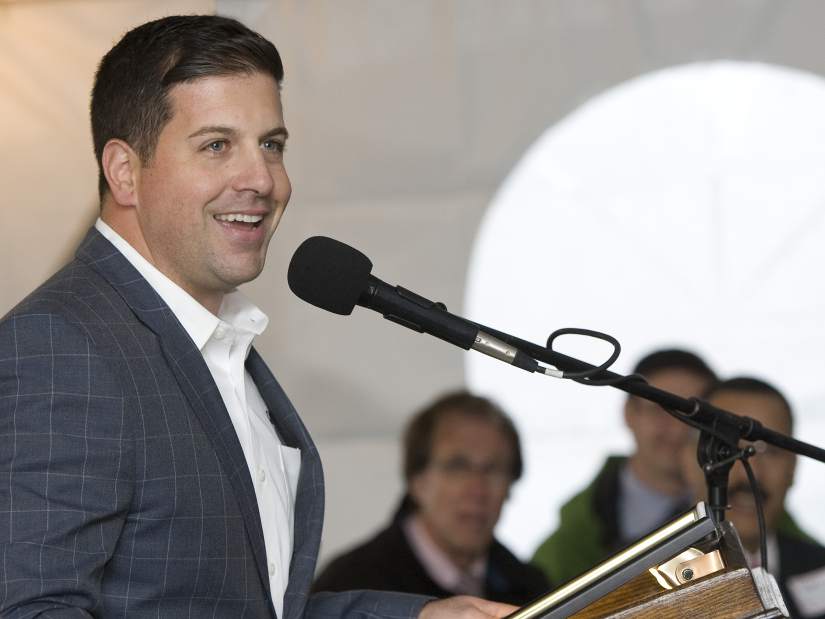Southington plant ready to turn food waste into energy
Record Journal November 15, 2016
Brian Paganini, vice president & managing director of Quantum Biopower, speaks during a ceremony marking the completed construction of the two-acre food waste to energy plant on DePaolo Drive in Southington, Tuesday, November 15, 2016. (Photo by: Dave Zajac, Record-Journal)
SOUTHINGTON — A completed two-acre food waste-to-energy plant could begin generating electricity for town buildings next year after receiving approvals to operate.
Quantum Biopower, owned by Supreme Industries Inc. of Harwinton, built an anaerobic digester on DePaolo Drive in Southington to turn waste food from grocery stores, banquet facilities and large cafeterias into electricity.
Brian Paganini, managing director of Quantum Biopower, led a ribbon-cutting ceremony with company and state officials Tuesday afternoon.
He pointed out a large enclosed concrete pit where trucks will dump food waste.
“Anything: fish products, deli meats, packaged foods,” Paganini said.
The mixture is sent through pipes and packaging materials are removed. Then it’s pumped to tanks where it sits. Natural processes produce gas which is burned to create electricity.
Paganini said the plant will receive 150 tons of food waste a day and will be run by three people.
“It’s fully automated,” he said.
With the facility open, companies within 20 miles that generate more than 2 tons of food waste per year are required to recycle organic material. Quantum has already been contacted by Yale University, the Aqua Turf Club and Whole Foods, according to Paganini.
The 2013 law that set those requirements for food waste producers has spurred proposals by other such companies, including Turning Earth, a Pennsylvania-based company that hopes to begin construction at 111 Spring St. early next year. Southington’s location puts major food waste producers near Hartford and New Haven within the 20-mile radius, Paganini said.
State Sen. Joe Markley, R-Southington, attended the ceremony on Tuesday and praised the vision of company officials and their commitment to the idea of electricity production from food waste.
“What shocked me was the confidence that everyone had, that it was all going to happen,” Markley said. “There’s no question in my mind that this is a success.”
Quantum Biopower’s efforts to open the plant were slowed due to financing difficulties and permitting problems. Company officials expected that state approval for the plant, the first of its kind in Connecticut, would be granted in six to 12 months. It took more than 2½ years for final approvals.
In June, the Connecticut Green Bank, a quasi-public agency, approved a $2 million loan to help start construction.
Anaerobic digestion is common in Europe but Paganini said Quantum is one of the first plants in the country using that process. Company and state regulators had to “learn together” to get the facility operating, according to Paganini.
When running at full capacity, the plant will produce 1.2 megawatts of power a year. That power will be sold to the town at a reduced rate to power municipal buildings under a 20-year purchase agreement.
Once loads of food waste arrive, it’ll take three to four months for natural processes to produce the gases necessary to generate electricity.